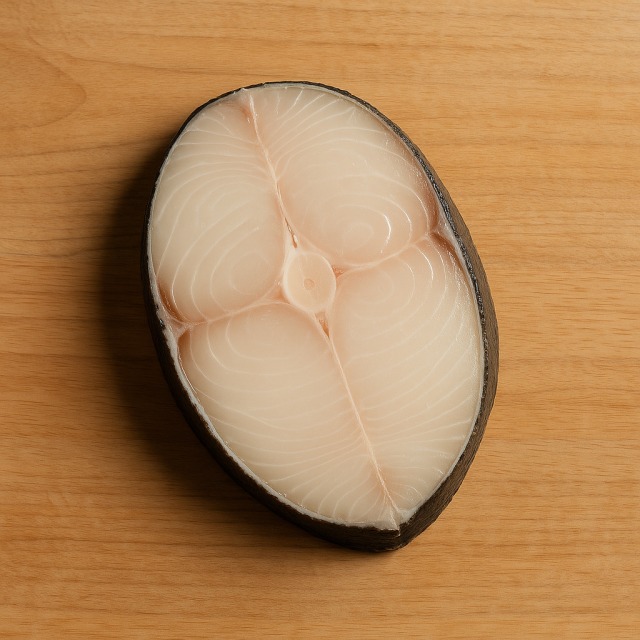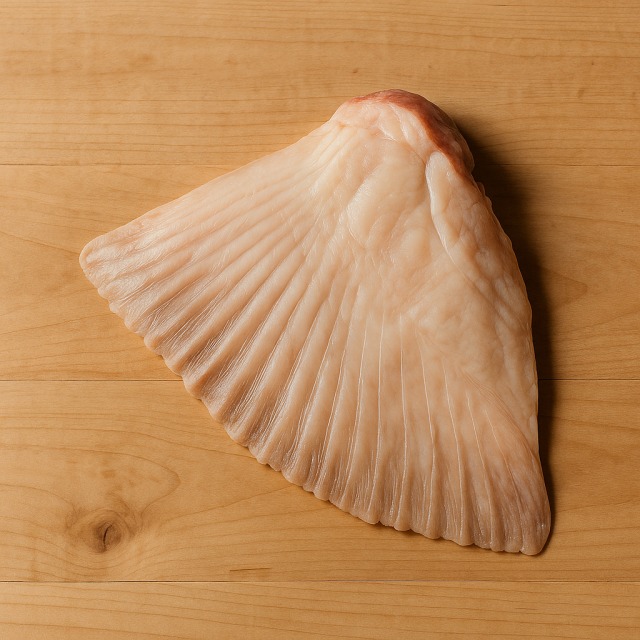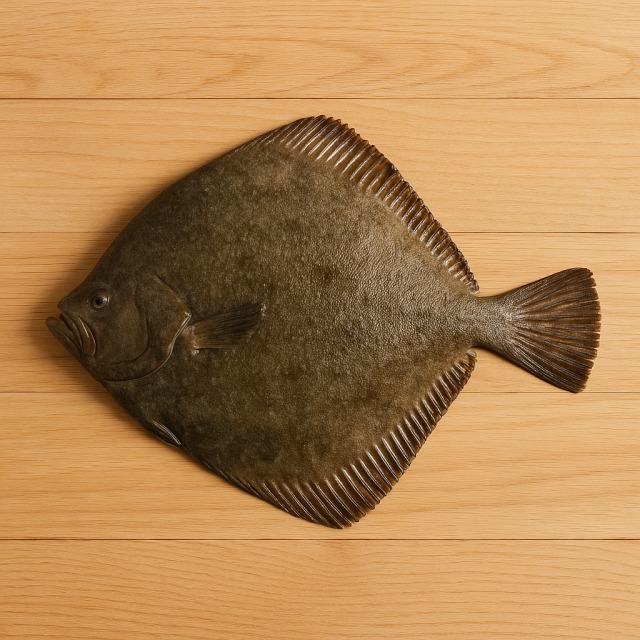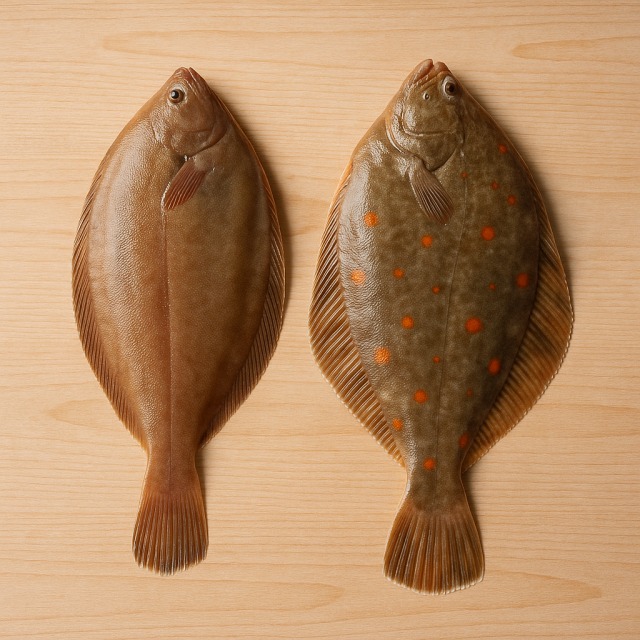Calorie Chart / Fish / Halibut
How Many Calories Are in Halibut?
Calculation of the nutritional value & Recommended Dietary Intake of halibut
For g and a calorie requirement of kcal
| Calories 176 kcal | Proteins 27 g | Lipids 7.5 g | Carbohydrates 0 g |
| 9% | 36% | 11% | 0% |
Health benefits of halibut

Halibut - 100g
Calories 117 kcal
Proteins 18 g
Lipids 5 g
Carbohydrates 0 g
Halibut is a moderate-calorie white fish: with 117 calories per 100 g, it sits between ultra-lean species and the fattier oily fish. Those calories come mainly from its 18 g of proteins, while lipids remain low, making halibut attractive when you want satisfying portions without an explosion of calories. Beyond calories, it is appreciated for its high-quality complete proteins that provide all essential amino acids.
Nutrient-wise, halibut delivers notable amounts of vitamin B12 (necessary for red blood cell formation and neurological function) and vitamin D, a nutrient often lacking in temperate climates. It also supplies selenium, an antioxidant trace mineral that supports thyroid health, and phosphorus, useful for bone maintenance. A 100 g serving supplies roughly one-third of daily selenium needs with minimal calories. Although leaner than salmon, halibut still offers omega-3 fatty acids EPA and DHA; these long-chain fats have supposed cardiovascular benefits ("supposed" since research is ongoing). Because of its favorable protein-to-calories ratio, halibut is frequently recommended to athletes who want muscle repair without excessive calories, and to people on weight-management plans seeking nutrient density per calorie.
A historical note: Pacific halibut has been fished by indigenous peoples of the Northwest coast of America for centuries, being smoked and sun-dried to preserve nutrients while keeping calories concentrated for winter storage. Today, it remains a prized catch thanks to its firm texture that holds up well to many cooking methods without adding many calories.
Tips for incorporating halibut into a balanced diet
If you monitor calories, halibut is extremely versatile. A simple oven-bake at 180 °C with lemon juice, fresh herbs, and a drizzle of olive oil keeps calories under control and highlights its delicate flavor. Serve it with steamed asparagus or a side of sautéed spinach to build a plate rich in micronutrients yet light in calories. Grilling halibut steaks on a cast-iron pan adds smoky notes without needing calorie-dense breading.
For a balanced lunch bowl, flake baked halibut over brown rice, add diced avocado for healthy fats, and a few slices of cucumber. The mix provides satiety while keeping total calories predictable. Tacos are another crowd-pleaser: fill corn tortillas with halibut, tomato salsa, and shredded red cabbage; a yogurt-based sauce replaces mayonnaise, trimming calories further.
Craving something heartier? Try halibut en papillote with julienned carrot and bell pepper. The steam cooking requires zero added fat, preserving flavor and limiting extra calories. Remember that sauces can quickly raise calories, so opt for a light vinaigrette or a dash of soy sauce instead of cream-based accompaniments. With thoughtful sides, you can keep the presence of calories low while still enjoying a refined dish.
Frequently Asked Questions
- How many calories are in halibut?
- There are 117 kcal per 100 g.
- Is halibut considered a low-calorie or moderate-calorie fish?
- At 117 kcal per 100 g, halibut is classed as moderate-calorie: leaner than oily fish yet higher than ultra-lean species such as cod. It provides a very good protein-to-calories ratio.
- Can halibut help with weight loss because of its calories?
- Yes. Its combination of high proteins and moderate calories promotes satiety and muscle maintenance, making halibut a strategic choice for calorie-controlled diets.
- How can I cook halibut without adding too many calories?
- Favor baking, steaming, or grilling without breading. Season with herbs, citrus, and small amounts of olive oil; pair with low-calorie vegetables like broccoli to keep total calories in check.
- Does halibut contain more calories than salmon?
- No. Halibut provides 117 kcal per 100 g, whereas salmon averages around 202 kcal. Choosing halibut cuts calories by roughly 40% while still supplying omega-3s.
Similar foods
Information provided by Calorie Menu may contain inaccuracies or errors. It cannot, under any circumstances, substitute medical advice or medication.










